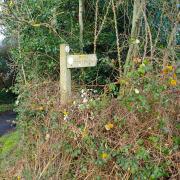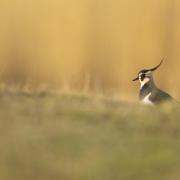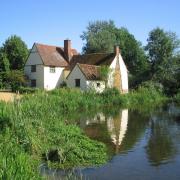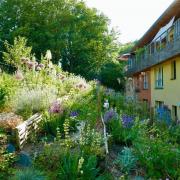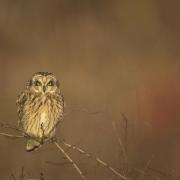Join Essex Book Festival at Hylands Estate for a day dedicated to nature and literature
By Ros Green, director of Essex Book Festival
If I had to describe this year’s Essex Book Festival, there’s just one word for it: fun. We all deserve a hearty dose of sunshine and fun after the last two years.
And what better way to just have fun than with a visit to the magnificent Hylands Estate. One of the jewels in the Essex crown, Hylands House is nestled in 574 acres of restored historic parkland in the heart of Chelmsford. It’s also the location of Essex Book Festival’s bumper one-day event, The Pleasure Garden, which is being held on Sunday June 19, 10am to 5pm.

Coinciding with Hylands’ monthly farmers’ market, its delicious vintage afternoon tea and live jazz sessions in the Stables Courtyard, prepare to be wowed by the sheer volume and variety of bookish events that are happening on the day. These include a fabulous programme of author events and writing workshops, most of them with a distinctly flora and fauna flavour.
Ones not to miss include historian-turned-author Kate Teltscher, who will be talking about her bestselling book The Palace of Palms: Tropical Dreams and the Making of Kew, which provides a fascinating insight into the making of one of the world’s most iconic and beautiful glasshouses. This is followed by gardener-turned-author Lulah Ellende and leading BBC Radio 4 playwright (and equally keen gardener) Robin Brooks talking about Lulah’s lyrical memoir, Grounding: Finding a Home in the Garden. More from Lulah later.

Sticking with Radio 4, the festival is thrilled to be welcoming Today Programme presenter Justin Webb to talk about his memoir The Gift of a Radio: My Childhood and other Train Wrecks. A very fitting addition to the programme as Chelmsford, the birthplace of radio, celebrates its role in the BBC’s centenary celebrations.
If that isn’t enough, there are some fantastic activities for families to dive into, such as a visit from George the Bookworm courtesy of touring theatre company The Grand Theatre of Lemmings. Spaces are limited so make sure you book your tickets well in advance for this one.
The same applies for Australian storyteller and environmental activist Dr Sarah Pye’s storytelling session, Wildlife Wong and The Orangutan. After the storytelling, Sarah and her trusty sidekick puppet, Pongo the Orangutan, will give participants a free nature journal so that they can measure themselves against a real orangutan before building their own comfortable nest in The Pleasure Garden.

Added to that, the festival will be making its first foray into space, in the safe and hugely capable hands of the Essex Steamettes, an amazing group of young coders and their award-winning long-time collaborator, digital artist and composer Lily Hunter Green. All will be revealed on the day.
Make sure you get booking now for what promises to be a truly magical, and most importantly, fun day. More information and tickets are available via the Essex Book Festival website, essexbookfestival.org.uk
Interview with Lulah Ellender, author of Grounding: Finding Home in a Garden
Just a few weeks after losing her mother, Lulah Ellender was served an eviction notice on the rented house that had been her home for many years. Despairing about what this would mean for her family, her immediate response was to freeze. With that, to abandon the flowers and plants she had spent more than ten years tending and cultivating.
Before long though, Lulah found herself back in her rented garden; tidying, planning and planting. As she says, ‘putting down roots’ even though she probably wouldn’t be there to see the shoots appear in spring. How could she do this, knowing that she would have to leave it, that she was doing it for someone else’s pleasure?

Lulah explains. ‘In a way, a garden is never finished. It is always in flux, so the idea that a permanent home provides some kind of fixed space is simplistic. But I do think it is harder to invest money and energy into a temporary space. Growing things is always an act of faith, but when you’re not sure if you will be there to see the plants flourish or bloom it adds an extra layer of uncertainty.’
‘A layer of uncertainty’ that Lulah clearly chose to ignore in her passion for gardening. Artists and gardens have always gone together. You only have to think of Vanessa Bell and Charleston, Vita Sackville-West and Sissinghurst or Mexican artist Frida Kahlo and her legendary Casa Azul garden.
Lulah’s book explores the similarities between writing and gardening. The notion of imagining, plotting and choreographing that is embedded in both activities. Combined, as she says, with that great ‘act of faith’ that it – both book and garden - will all come together in the end. She is also interested in the interplay between the plants and the artists’ art. How gardens feed, nurture and shape their creativity.
Could she imagine living without a garden? ‘It would be really difficult,’ she replies. ‘But if I didn’t have the privilege of an outside space, I would grow in window boxes and fill the place with houseplants.’
Finally, why do we have this urge to grow things, why do we plant? ‘I think for reasons that are shared across all cultures and ages: the desire to create beauty, the need to grow food, the impulse to create, the urge to control our surroundings and that fact that it makes us feel good.’
Writing competition
The Pleasure Garden event also marks the launch of Essex Gardens Trust’s Beth Chatto Writers Prize 2022, named after the renowned plants woman. The prize is for creative writing: a short story, novel extract or a piece of life-writing or memoir no longer than 2,000 words, in which a garden or landscape is an essential part of the narrative. For more details visit essexgardentrust.org.uk









